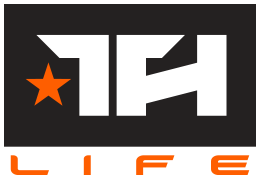I have been loving getting your questions and answering them. I went LIVE a couple weeks ago and answered questions on my @tonyhortonfitness Instagram, and I had a blast. I talked about everything from cheat meals, to breakfast cereals, to bouncing back from an injury and so much more. You can catch that replay here.
For today’s Q+A I chose a question that I thought many of you out there would appreciate and may have curiosity about. I’ve touched on it before, but I thought posting it here would be helpful too.
“Tony, I'm in my early 30s, relatively fit and eat right, however I do want to start incorporating supplements. What do you recommend as a good starting point? Thank you for EVERYTHING you do!” - Zach
Thanks for your question Zach. First things first, I have my own supplement regime that is specifically tailored for me based on my body’s needs. I highly recommend EVERYONE work with a professional when it comes to supplements and figuring out what is best for your body.
It’s no secret that there are a lot of crappy supplements out there, not to mention, you may be taking stuff your body doesn’t need. As a starting point, here are my general suggestions when it comes to which supplements to take.
I believe that it’s important to start with a solid foundation, which means a well-rounded, nutritious diet packed with whole foods.
When it comes to supplements, think of them as the sidekick to your healthy lifestyle.
Start with the basics: a good multivitamin to cover your bases. Look for one with essential vitamins and minerals.
Next up, omega-3 fatty acids in the form of Fish Oil or Flaxseed oil are very important for joint health, brain health and overall wellness. Again, there are a lot of crappy products out there, so always buy from a good source, not what you find doing a search on Amazon.
I like Nordic Naturals for fish oil and Barlean’s Flax oil. It’s important to supplement with Omega-3’s because our body doesn’t produce them naturally. Wild caught fish is great to add to your diet weekly and ground flax on your morning oatmeal helps too.
If you're hitting the gym hard, consider a quality protein powder. Again, know your source. I created my own protein powder line after being diagnosed with Ramsay Hunt syndrome in 2017. It’s one of the products that helped me get strong again after losing 30 pounds.
Adding protein powder to your diet is a convenient way to meet your protein requirements, aiding in muscle recovery and growth especially if taken after a workout. Whether you choose vegan or whey-based protein, find one you like. My Power Life protein comes in vegan or whey, and it took years to formulate, so I know exactly what ingredients are in it and they are clean!
Including Vitamin D as a daily supplement is very important. Most Americans are low in Vitamin D and they don’t even know it. It’s considered a hormone, and helps with healthy cell function. Even if you’re out in the sun regularly, I suggest taking at least 2,000 iu’s a day to start. Some people need up to 10,000 iu’s daily for a period of time because their Vitamin D is so low. It’s best to get your Vitamin D tested by a professional so you know exactly how much you need.
As with anything, before you dive in, consult with a healthcare professional. They'll help tailor your supplement plan to your individual needs.
Remember, supplements are meant to supplement, not replace, a healthy diet. So, fuel your body with real, nutrient-dense foods, and let supplements fill in the gaps.
